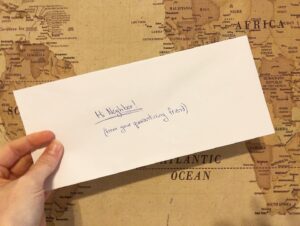
It’s been 5 years since the pandemic started. Sometimes it feels like it’s been lifetimes, and sometimes it feels like we’re still living in the alternate reality it created.
I was working as an academic advisor at Tulane University at the time. We found out on a Sunday in March that we would begin working remotely the next day. I haven’t gone back to work in person since.
Did anyone imagine that life could so abruptly halt the way it did? That the world could collectively pause and reassess every action?
I was living alone with my very sick and elderly dog, Harry. I’m better equipped for solitude than most people, but still I worried that I might lose my mind from isolation. So, I started writing letters. I mailed them to faraway friends and distant acquaintances. And after I ran out of known pen pals, I started writing letters addressed generally to my neighbors, whoever they may be.
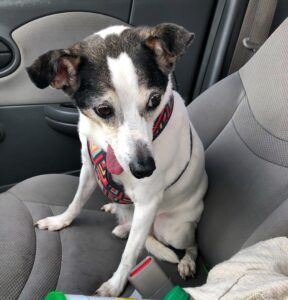
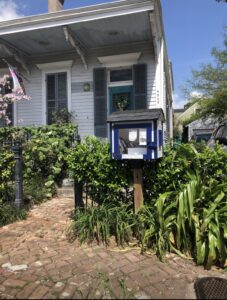
I wrote a few copies of the same letter. It in, I introduced myself and Harry. I wrote about how we were passing the time by trying some new recipes and how I’d just bought a $50 guitar on Facebook marketplace so I could try to teach myself to play. I asked my unknown neighbor how they were doing and how they were spending their time in isolation.
Then I put the letters in a few Little Free Libraries near my house.
A few days later, I found a large envelope with my name on it in the Little Free Library closest to my house. A family had found my letter and written back. They included a family photo and their favorite bread recipe. Their young foster son wrote me a note of his own in large, bubble handwriting, and he included a heart he’d colored for me to hang on my door.
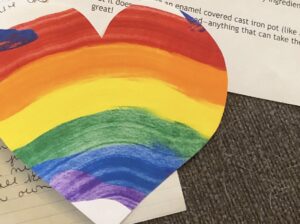
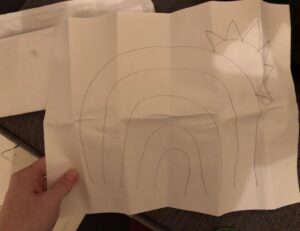
And I knew when I got that first response that I’d unintentionally started a thing that felt important.
I started trying to write and deliver 4-5 letters per day. The only time I’d leave my house was to walk Harry and then to deliver letters to the libraries. I used the Little Free Libraries directory map on their website and marked them off as I went, venturing further and further from my house to reach new libraries each day. I started including my email address and Instagram in case people wanted to write back.
And the responses started coming. There were Instagram messages letting me know I’d brought a smile to their kid’s face when they made their daily walk to search for books. There were emailed recipes for me to try. One person offered me free lemons. There were similar initiatives that some people reached out to let me know about, like the person who was collecting letters for healthcare workers and first responders. At one point, there were 3 “Hello Neighbor!” letters in the nearest Little Free Library—people paying it forward so that more neighbors could join the fun. One person emailed me a code for a free trial of online guitar lessons. I used them for months.
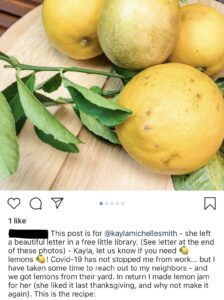
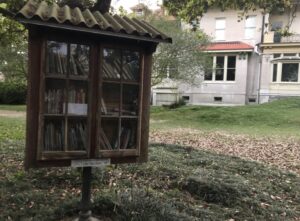
At one point, someone shared a photo of my letter in a neighborhood Facebook group, and I got an email from someone in Australia telling me they saw my letter online and that they used to live in the neighborhood and how much they missed it. Later, a different, unrelated person reached out from Australia. Healthcare workers, high school students, families, and others living alone wrote back.
And then there were the sad emails. The people who said they hadn’t communicated with anyone in days. The people afraid of losing their jobs. The people who were in unimaginable pain. They had no idea who I was, and that didn’t matter. They weren’t going to pass up an opportunity to connect with someone who extended an invitation.
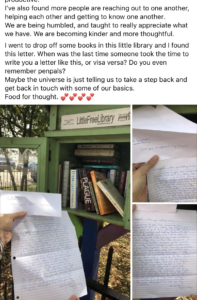
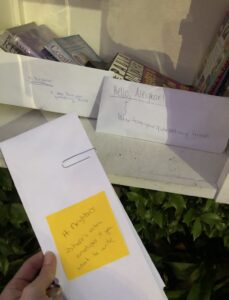
I must have dropped off letters in at least 50 Little Free Libraries during March and April of that year. (I have the exact number in an old journal that I’ll find sometime.) Partly it was because it brought me joy, of course. But partly it was because I wanted to give another little kid a chance to draw a picture for a stranger or another scared person a chance to share their loneliness.
I’d started writing the letters as a fun distraction to break up the monotony of the day and give Harry an opportunity to pee on trees in new neighborhoods. I hadn’t anticipated that it would end up mattering to anyone else.
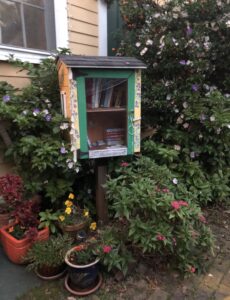
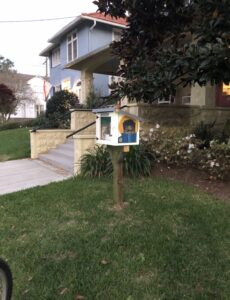
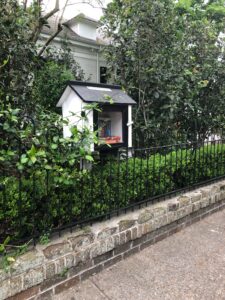
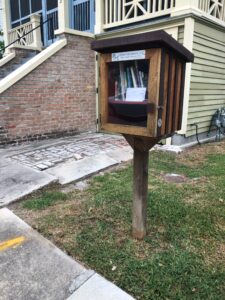
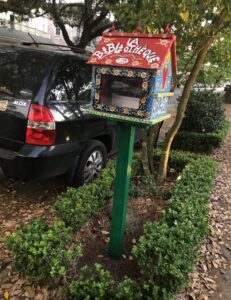
When I think about early days of Covid, I think about those letters and the libraries and the way people in the community started putting canned goods and other nonperishables in the libraries, too. I think about the porch concerts in New Orleans, and when people applauded healthcare workers every day from their balconies and windows in cities around the country, and all the creative ways that people tried to connect with others and do things to bring a moment of brightness to someone else’s day.
Something about that experience makes me think about the state of our country right now. Here we are again, in a time when people feel isolated and hopeless and afraid for entirely different reasons.
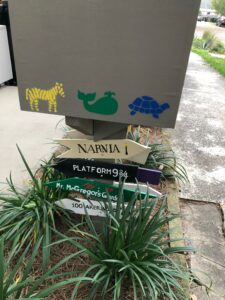
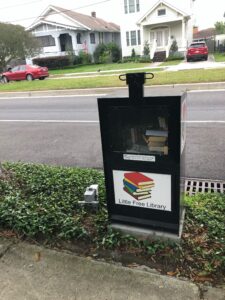
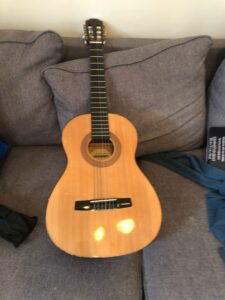
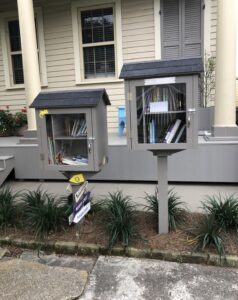
When there are awful things happening in the world, I think it’s easy to feel like we’re powerless to do anything that will make a difference. And sure, there are obvious things people can do as a response to injustice like going to protests or calling government officials, but it’s hard not to feel defeated when those efforts don’t show direct results.
I don’t have some profound motivational point here. I watch the news every day and feel horrified and disgusted. But what the early pandemic days taught me is that your actions don’t have to be grand or elaborate to make a difference to someone. A moment of recognition or connection can make a difference. An offer of lemons or a bread recipe can make a difference. These actions won’t fix anything on a grand scale, but maybe they’ll make someone smile. Or maybe they will give someone hope, and is there really anything more powerful than that?
Here I sit still, with another elderly dog, writing letters (in the form of blog posts) to strangers.

What an amazing idea, Kayla! I wish I had thought of it myself! You know me as being very social but I have no fear of isolation and solitude – I’m sure I could have helped others who do!
It’s not too late! Sometimes I think I might leave some letters in Little Free Libraries just for fun!